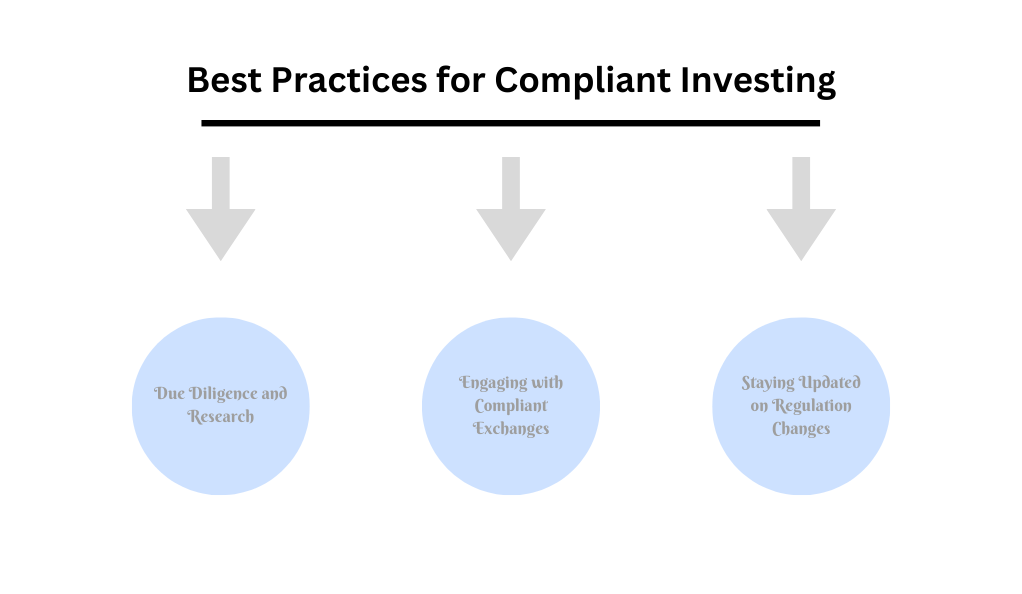Cryptocurrencies have taken the financial world by storm. With the digital assets promising revolutionary changes to monetary transactions and investments, it’s essential to understand the evolving regulatory landscape that accompanies this new frontier. In this guide, we’ll break down the complexities of crypto regulations and provide actionable steps to ensure your investments are always in compliance.
Introduction to Crypto Compliance
Cryptocurrencies, since their inception, have been an exciting yet turbulent space. While they offer unprecedented decentralization and financial freedom, these benefits come with their own set of challenges. Among these challenges is the evolving landscape of regulations and compliance that every investor should be aware of.
To truly appreciate the world of cryptocurrencies, one must also understand the need for rules and regulations. While decentralized in nature, this does not mean crypto operates in a lawless void. In fact, as crypto gains mainstream acceptance, the need for clear guidelines and structures becomes increasingly evident.
Why is Compliance Important?
At its core, compliance ensures the safety of investors. While the decentralized and often anonymous nature of cryptocurrencies offers numerous advantages, it also poses challenges, particularly when it comes to fraudulent activities and scams. By adhering to regulatory guidelines, investors protect themselves from potential pitfalls.
Moreover, compliance aids in building trust in the ecosystem. An environment where rules are respected and followed encourages more participants, from individual investors to institutional ones. It also fosters a sense of security and stability, which can significantly influence the overall market health.
Understanding the Crypto Landscape
The crypto landscape is vast, diverse, and constantly evolving. Just like traditional financial markets have stocks, bonds, and commodities, the crypto world has Bitcoin, altcoins, tokens, and more. Each of these assets has its own regulatory considerations, making it essential for investors to stay informed.
It’s crucial to realize that cryptocurrencies go beyond just being ‘digital money.’ They can represent anything from a stake in a project (tokens) to a new way of establishing contracts (smart contracts). With such diversity, regulatory bodies worldwide are working tirelessly to ensure the right frameworks are in place.
Unpacking Crypto Regulations
Crypto regulations might seem daunting at first, given their complexity and the rapid pace at which they evolve. However, understanding the regulatory environment is a proactive step that every responsible investor should take to safeguard their investments.
Governments and financial institutions around the world have recognized the potential of cryptocurrencies. While some have embraced them, others have taken a more cautious approach. This has resulted in a patchwork of regulations that vary from one jurisdiction to another. To be a compliant investor, one must be aware of these differences and act accordingly.
The Role of Government Agencies
Government bodies play a pivotal role in shaping the crypto world. They provide frameworks that guide the operation of exchanges, the issuance of new tokens, and even how individual investors should report their gains.
Different countries have different stances. While some nations have adopted a friendly approach towards cryptocurrencies, fostering innovation and growth, others have clamped down, fearing potential economic disruptions and illegal activities. As an investor, recognizing these variations and adapting to them is paramount.
Tax Implications
Taxes and crypto – a combination that often raises eyebrows. Just like any other form of income or investment, gains (and losses) from crypto are subject to taxation in many jurisdictions.

- How are Crypto Transactions Taxed?: Depending on your jurisdiction, crypto can be considered property, currency, or even a form of security. This classification significantly affects how your crypto transactions are taxed. For instance, in some countries, selling crypto after holding it for more than a year could result in lower capital gains taxes.
- Reporting and Documentation: Maintaining a clear record of all your crypto transactions is not just good financial practice; it’s often a regulatory requirement. With the increasing scrutiny on crypto transactions, having a transparent and detailed transaction history can be invaluable.
Best Practices for Compliant Investing
Investing in crypto goes beyond just picking the right assets. It’s about understanding the broader landscape, the regulations, and ensuring that your investment practices align with the rules.

Due Diligence and Research
The crypto market is rife with opportunities, but it also has its fair share of risks. From exit scams to pump-and-dump schemes, the decentralized nature of cryptocurrencies provides ample ground for malicious actors. This makes due diligence not just advisable, but necessary.
Understanding the fundamentals of any project or asset you invest in, knowing its team, its mission, and its track record can offer insights into its legitimacy and potential. This research not only aids in making informed investment decisions but also ensures that you’re aligning with compliant projects and platforms.
Engaging with Compliant Exchanges
The choice of where you buy or trade your cryptocurrencies can have significant implications for your compliance. Not all exchanges are created equal. While some strictly adhere to regulatory guidelines, others might be more lax, exposing you to potential risks.
Choosing exchanges that are licensed and have a reputation for transparency and security should be a priority. These platforms often have measures in place that not only protect your investments but also ensure that you’re on the right side of the law.
Staying Updated on Regulation Changes
The only constant in the crypto world is change. As the market evolves, so do the regulations that govern it. Being complacent can be detrimental, making it imperative for investors to stay abreast of any regulatory shifts.
Subscribing to credible crypto news outlets, joining forums, and even setting up Google alerts for regulation news in your jurisdiction can keep you informed. Remember, knowledge isn’t just power; in the crypto world, it’s also protection.
The Consequences of Non-Compliance
Venturing into the crypto realm without a clear understanding of compliance can be treacherous. Non-compliance doesn’t just risk financial penalties; it can also lead to legal complications and damage to one’s reputation.
Regulatory bodies, while still grappling with the nuances of the crypto world, have started clamping down on non-compliant actors. This includes not only projects and exchanges but also individual investors. Ignorance of the law, as they say, is no excuse. So, arm yourself with knowledge and tread cautiously.
Conclusion
Crypto investing is exciting, revolutionary, and potentially lucrative. But, like all investments, it’s not without its challenges. By understanding and adhering to regulations, investors not only protect themselves but also contribute to a more stable, trustworthy, and robust crypto ecosystem. As you navigate the twists and turns of the crypto world, let compliance be your guiding star, illuminating the path to secure and responsible investing.
FAQs
Crypto regulations are dynamic and can change based on market developments and governmental decisions. Stay informed!
No, regulations might differ based on the nature and purpose of the cryptocurrency.
Not recommended! Evading taxes is illegal and can lead to severe penalties.
Research the exchange’s licensing, its regulatory stance, and always check for reviews and credibility.
If you’re dealing with international crypto transactions, you should be aware of the regulations in the countries you’re transacting with.